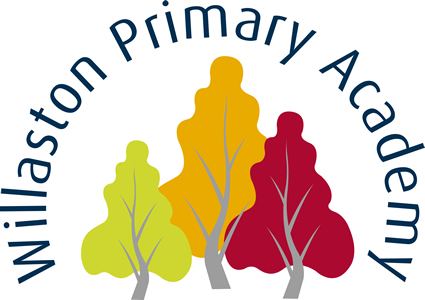Science
SCIENCE AT WILLASTON PRIMARY ACADEMY
👩🔬INTENT
At Willaston Primary Academy, we aim to inspire curiosity, creativity, and a lifelong interest in the world around us. Science at our school encourages children to ask questions, explore ideas, and make sense of the natural and physical world through observation, investigation, and reasoning.
Our curriculum is designed to:
-
Build secure knowledge and understanding of key scientific concepts and vocabulary.
-
Develop children’s ability to think scientifically and work systematically when investigating.
-
Encourage curiosity, questioning, and a sense of wonder about the world.
-
Equip pupils with the scientific skills to plan, observe, measure, record, and draw conclusions.
-
Make meaningful links between scientific learning and real-life contexts.
-
Ensure progression of knowledge and skills through clear sequences of learning from Early Years to Year 6.
We want every child to leave Willaston with a strong understanding of how science impacts their lives and the wider world, and with the confidence to ask, “What happens if…?”
👩🏾🔬IMPLEMENTATION
Our Science curriculum follows the National Curriculum for Science and is carefully planned to ensure coverage and progression in both substantive knowledge (the facts and concepts of science) and disciplinary knowledge (the skills of scientific enquiry).
Curriculum Design
-
Science is taught weekly in discrete lessons, with opportunities for cross-curricular links where appropriate.
-
Each unit includes clear key knowledge statements which children revisit and build upon as they progress through the school.
-
Prior learning is regularly revisited through low-stakes quizzes and discussion to help children retain and apply what they know.
Scientific Enquiry
Children develop their working scientifically skills through a range of enquiry types, including:
-
Observing changes over time
-
Identifying and classifying
-
Fair and comparative testing
-
Researching using secondary sources
-
Pattern seeking
These approaches help pupils to learn how to ask questions, make predictions, carry out investigations, record data, and evaluate their findings.
Assessment
We use TAPS (Teacher Assessment in Primary Science) to assess children’s progress in scientific enquiry skills throughout each unit.
In addition, key knowledge assessments are used at the end of each term to check pupils’ understanding of the scientific concepts taught.
Assessment information is used to inform future planning, identify misconceptions, and ensure all pupils make good progress.
Practical and Engaging Learning
Science at Willaston is hands-on and exploratory. Teachers provide regular opportunities for children to experiment, observe, and draw conclusions through practical work, outdoor learning, and the use of real-life contexts.
We make effective use of our school grounds and local area to bring science to life and deepen children’s understanding.
Inclusivity and Support
We ensure that all pupils, including those with SEND, can access and achieve in science through adaptive teaching, practical resources, and targeted adult support where needed.
👨🏼🔬IMPACT
By the end of their time at Willaston Primary Academy, pupils will:
-
Have secure knowledge of key scientific concepts and vocabulary across all areas of science.
-
Be able to apply their scientific enquiry skills to explore and explain the world around them.
-
Show curiosity, independence, and enthusiasm for investigating questions scientifically.
-
Be confident in communicating their findings using appropriate scientific language.
-
Understand how science is relevant to everyday life and to future careers.
The impact of our science teaching is measured through:
-
Ongoing teacher observations and TAPS assessments of enquiry skills.
-
Termly key knowledge assessments to evaluate understanding and retention.
-
Pupil voice discussions to assess engagement, enjoyment, and scientific thinking.
-
Work scrutiny and moderation to ensure progression and high expectations across year groups.
At Willaston Primary Academy, we are proud that our science curriculum helps children to think deeply, question confidently, and understand the importance of science in shaping our world.
